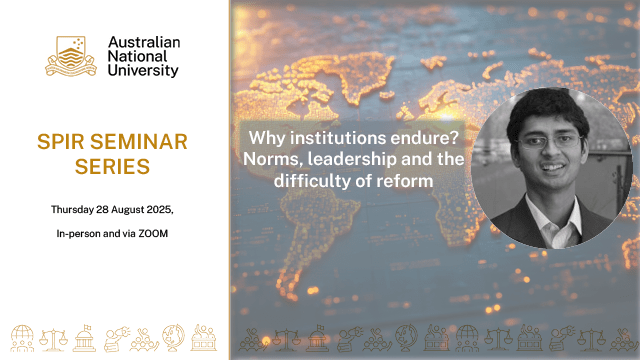Why institutions endure? Norms, leadership and the difficulty of reform

Why are institutions so persistent, when do they evolve, and do social norms define institutional equilibrium? Understanding institutional equilibrium and evolution is critical for explaining development paths and informing policy.
This paper develops a novel framework showing that social norms are a key component of the institutional equilibrium. The framework has several distinct features and results. First, it shows that leadership norms on corruption mirror those of society, as society exerts pressure through contagion effects, habit formation, incentives, selection pool effects and normative alignment.
Second, using a principal–agent framework, the paper provides micro-foundations for this mirroring. Third, it shows the rare conditions that are needed for institutional reform. Fourth, it argues that in rare cases where reform succeeds, leaders must alter underlying norms–creating a hysteresis effect. The paper identifies the mechanism of change and calibrates the model to notable instances of reform. Finally, it provides empirical evidence consistent with the framework.
Dr Omer Majeed is a Visiting Fellow at the TTPI and an Associate at CAMA, ANU. Omer holds a PhD from the Crawford School of Public Policy at the Australian National University (ANU). He has published articles on firm growth, innovation, R&D, poverty, inequality, monetary policy, and international trade. The research presented here is part of an ongoing project being undertaken at ANU. Omer also works at Treasury.
This event was originally published on the School of Politics & International Relations website.
Location
RSSS Room 3.72 or Online via Zoom
Speaker
- Dr Omar Majeed (ANU)
Contact
- Richard Frank